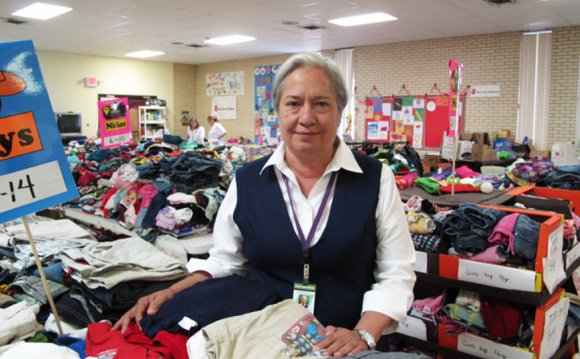
Charities that help the elderly Central American
When George Makrauer heard recently the federal government ended up being suing several cancer charities for defrauding donors, the retired businessman did an emotional happy party.
"I was thrilled, " states Makrauer, a resident of Villages just who composed a page on Florida attorney general 5 years ago moaning about the Cancer Fund of America's deceptive tactics. "Ever since I relocated to this [retirement] neighborhood, I've gotten much more calls seeking money. These creeps victimize individuals here."
Makrauer, 71, also got what seemed to be a costs through the charity for a purported $20 pledge he never ever made. Although he was savvy enough to not part with their cash, lots of other people did — on tune of $187 million, almost all of that the Federal Trade Commission claims went to family and friends for the charity's CEO, their particular affiliates and for-profit telemarketing businesses.
In a lawsuit resistant to the charities — Cancer Fund of America, kids' Cancer Fund of The united states, Cancer help providers and the cancer of the breast community — the us government alleges that not as much as 3 percent associated with contributions actually decided to go to help cancer clients, despite telemarketing programs that implied usually.
The remainder visited fundraising expenditures, ample salaries, luxury cruises, trips to Las Vegas and Disney World, dishes at Hooters, dating web sites and expenditures at Victoria's Secret.
Solicitors basic out of each and every condition plus the District of Columbia joined the match, noting that donors originated in through the country. But officials said Florida — with its huge populace of retirees — had been most likely a prime target.
"The vast majority of people who give based on direct mail or telemarketing — the strategies these charities utilized — are elderly people, " stated H. Art Taylor, president and CEO associated with the bbb's smart Giving Alliance. "in the event that you talk to any charity that does direct-mail solicitation, they are going to let you know that most likely 80 percent of these donors have reached least 55, and many tend to be 60, 70, 80."
The issue seeks more than $100 million in fines resistant to the charities and their professionals, not one of who features admitted wrongdoing. The FTC acknowledges that most of this cash is gone and that donors will not get refunds.
Whitney Ray, a spokesman for Florida Attorney General Pam Bondi, stated any funds gathered would check-out charities "which actually do supply help cancer patients" and to protect prosecution costs.
But he as well as others understand case as a huge cautionary story for donors.
"you will find virtually hundreds of charities with 'cancer' within their names, and it is easy to mistake one for the next, " Taylor said. "Unfortunately, we make their particular donation choices based entirely from the page they get in the mail or even the call they reach night."
Authorities recommend never ever giving by phone as it's impractical to understand who's really on the other end. In addition they advise a pre-emptive "giving method": determining what is important for you and just who should get cash instead of responding to an emotional attraction.
Donors can check into nationwide companies, their particular economic records and evaluations on the web at Give.org and CharityNavigator.org. They are going to find smaller and neighborhood charities at Guidestar.org and nonprofit search part of CFFound.org, the internet site for the Central Florida Foundation.
But even sifting through the economic files published there does not guarantee that donors will spot misleading techniques. In cases like this, the FTC claims, the charities obscured exactly how little these were paying for assisting cancer tumors patients by claiming grossly filled in-kind donations.
"We looked at their types and saw plenty of red flags, " stated Mark Brewer, president and CEO of the Central Florida Foundation, which manages a lot more than 400 altruistic funds and advises both donors and charities. "But for the average person, my guidance is to Google the charity's name."
For these charities, doing this will have resulted in a litany of internet sites with complaints from donors — plus development that six states had formerly sued all of them. The Center for Investigative Reporting as well as the Tampa Bay occasions had rated the disease Fund of The united states 2nd on a listing of "America's worst charities."
As time goes by, Floridians need much more security against would-be scammers, said Adam Putnam, commissioner associated with state dept. of Agriculture and Consumer Services. Legislators in 2014 passed a law banning charities having come across appropriate difficulty various other states. Additionally forbids felons from soliciting charitable resources and requires telemarketers which collect sensitive financial information becoming fingerprinted.













